Pumping the Brakes: Embracing the Detour - Midlifehood Edition | Week 16 Post-layoff

Two songs kept playing in our heads this week: "It Don't Come Easy" by Ringo Starr and "The Waiting" by Tom Petty. Both perfectly captured our emotions as our seemingly straightforward home sale suddenly veered off course. Though disappointing at first, we believe everything happens for a reason.
Perhaps this detour is giving us extra time to prepare, or maybe it's saving us from an unseen complication down the road. Regardless, we remain determined to keep moving forward with our plan for financial independence. The path may have changed slightly, but our destination remains the same - creating a simpler, more intentional life with greater freedom and fewer financial constraints.
This Week's Reality Check:
- ✓ Home inspection completed (with "the cleanest report in 20 years" according to the buyer's agent)
- ✗ Buyer backed out (for personal reasons completely unrelated to our house)
- ✓ House back on the market with improved property description
- ✓ Met with and secured an estate sale company
- ✓ Continued sorting through items for packing and/or the eventual sale
- ✓ Spent quality time on dog walks, movie nights, and friend lunches despite the uncertainty
What We're Actually Doing:
When Plans Go Sideways
Monday started normally enough. We received notice of the buyer's inspection Sunday afternoon and it was scheduled for Monday morning. We spent Sunday getting the house back into showing condition—tucking away all evidence of pets and people actually living here. Monday morning at 8:40 a.m. we loaded two dogs and one disgruntled, continuously meowing cat into the car as the inspector arrived 20 minutes early.
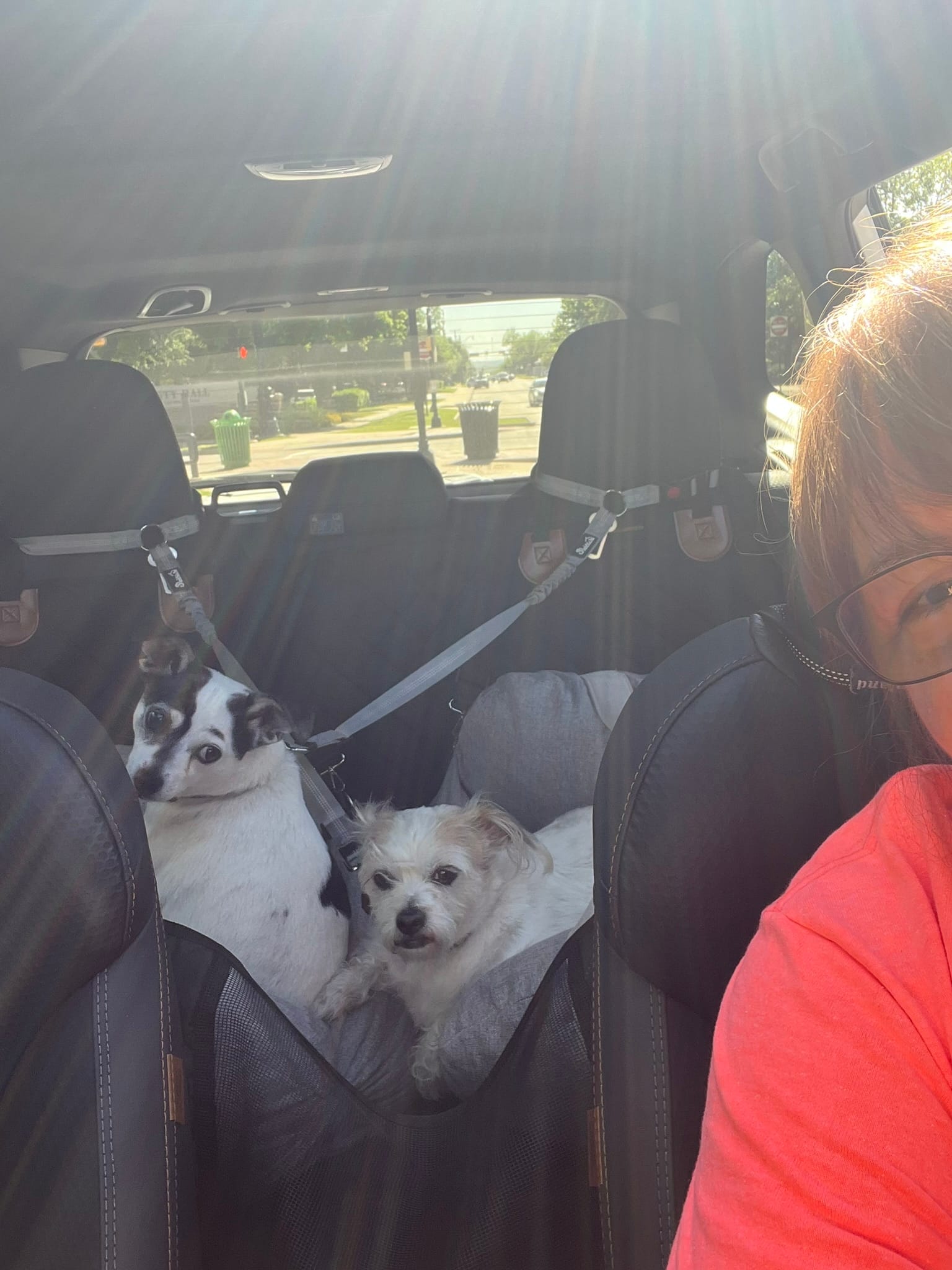
With 3.5 hours to kill and a car full of animals, we drove 45 minutes to a breakfast place with vegetarian options. Since we had the cat with us, we decided to have a "breakfast tailgate party" standing at the back of Suby-Doo, complete with a Mexican-style egg dish, a homemade lemon blueberry muffin and chai tea. Not exactly a typical breakfast meal out, but in its own way, perfect.
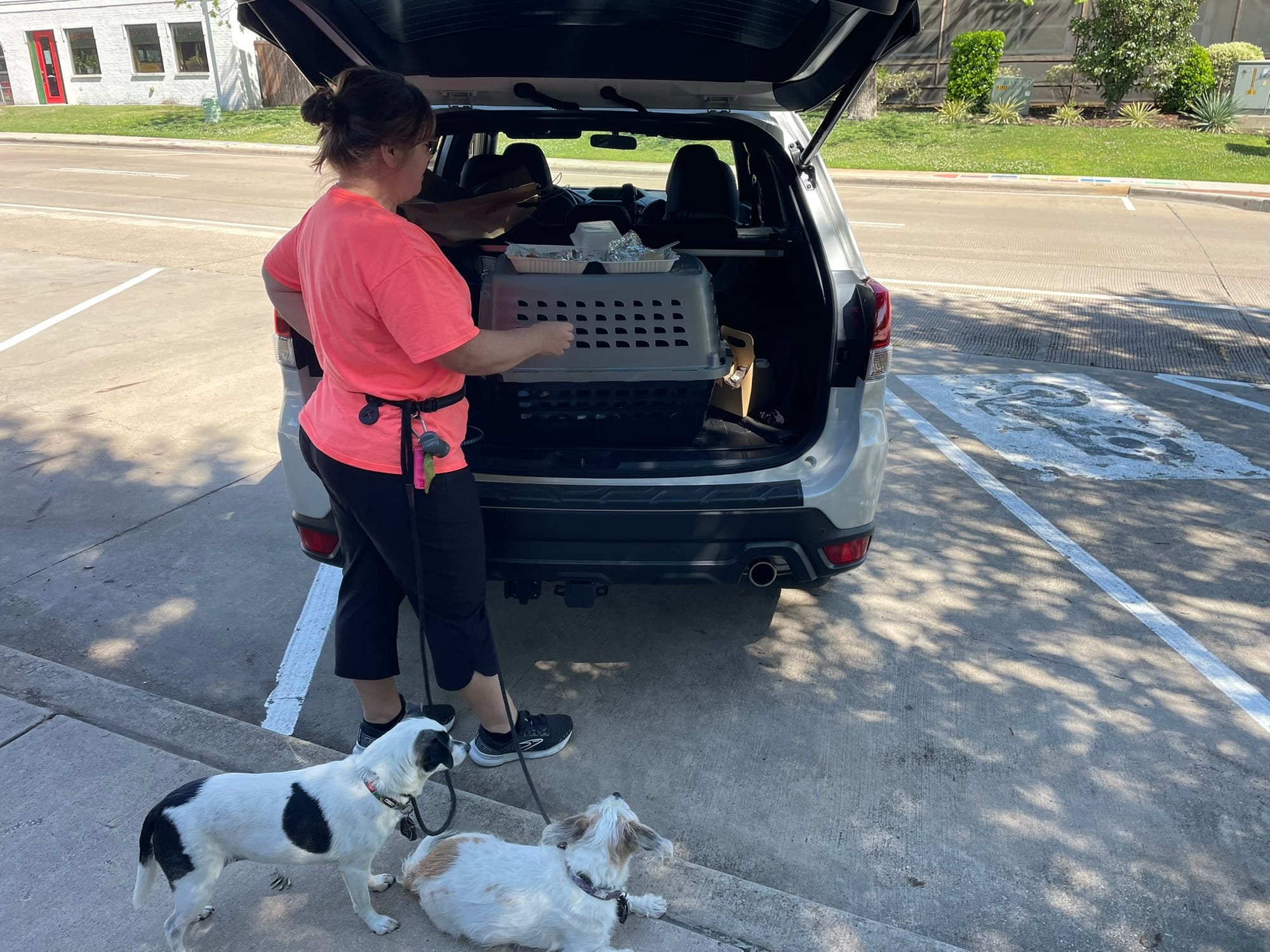
A few days later, we received good news—according to the buyer's agent, it was "the cleanest inspection report she'd seen in 20 years."
Then, the bottom fell out.
The text came first, followed immediately by our agent's call. The buyer was backing out. Not because of anything wrong with the house, but because his separated wife had learned about the purchase, which sparked conversations about reconciliation. If they got back together, he wouldn't need a new house after all.
Just like that, our path took a slight detour, and we found ourselves back at square one—house on the market, waiting game reset.
But something interesting happened in that moment of disappointment. Initially seeing the words in the text felt devastating. But, rather than dwelling on being disappointed, instead we focused on being grateful to learn that the reason wasn't related to the house. We signed the termination agreement, rewrote the property description to make it even more compelling, the agent reactivated it and we moved forward, continuing our sorting and packing tasks.
This ability to pivot and adjust plans has become something of a superpower. My mom told me she thinks that superpower was developed over our many years of owning and running restaurants, where each day brought new challenges requiring quick thinking and adaptability. This skill serves us well now, allowing us to respond to setbacks without losing momentum toward our goals.
This adaptability also helps us avoid a common trap that stalls many on their journey toward financial independence: the risk of deferring life until some perfect future moment. As we've learned through both our restaurant days and our current transition, waiting for perfect conditions often means waiting forever.
The Trap of "Someday" Thinking
An email newsletter from entrepreneur Justin Welsh landed in our inboxes with perfect timing. He shared a story about a friend who'd built a wildly successful business—$5M in revenue, featured in Fast Company—yet became visibly upset discussing his personal life.
"I've been saying 'someday' for seven years," the friend confessed. "Someday I'll take that trip with my wife. Someday I'll be at my kid's events." Meanwhile, his marriage was struggling, his connection with his kids fading, and his health declining.
Welsh called this the "cruel math of deferred living"—trading guaranteed time today for imaginary time in the future. "The 'someday' mindset is a scam," he wrote. "We're trading guaranteed time today for imaginary time in the future."
This message resonated as we dealt with our house sale setback. We could easily fall into the trap of putting life on hold until the house sells, until we're in the tiny house, until everything is "perfect." Instead, we're choosing to live fully in the present, even as we work toward our future vision.
Welsh's article and the philosophy of not deferring life connects directly to broader changes in how people are viewing retirement and success in today's world.
Reimagining Retirement and Success
I came across a recent article in the Journal of Accountancy where they noted that the very concept of retirement is evolving. Based on the 25th annual Transamerica Retirement Survey of more than 6,000 workers, they found that nearly one-third (32%) dream of doing some form of work in retirement. In fact, 39% of respondents expect to retire at 70+ or not at all, and 52% plan to work at least part-time during traditional retirement years.
The article suggests that while the word "retirement" isn't going anywhere, the term "financial independence" might more accurately define what most people dream about for their later years. It's not about stopping work entirely—it's about having the freedom to choose how you spend your time.
This insight perfectly describes and reinforces our journey. We're not looking to stop being productive—we're seeking to align our living situation with our true priorities. We want to travel (which 65% of survey respondents listed as a retirement dream), spend more time with friends and family (57%), and pursue hobbies (49%), all while maintaining work that brings meaning and sufficient income.
I also listened to a podcast this week—The Joe Polish Show featuring Eelco de Boer discussing "Freedom First"—that reinforced this idea from another angle. De Boer, an entrepreneur from the Netherlands, observed that many people start businesses seeking freedom, only to find themselves with less freedom than ever.
His advice stuck with me, because this was our experience when we owned and operated our restaurants. He says: "Do who you are because if you don't know who you are, you become what you do." This philosophy aligns perfectly with our tiny house journey. By deliberately downsizing and simplifying, we're creating space to be who we are, not just perform roles or accumulate possessions. We're working to build a life around our priorities now, instead of waiting for some distant retirement date to start living authentically.
Finding the Balance
The setback with our buyer could have felt more devastating if we were pinning all our hopes on that single transaction. Instead, it became just another bend in the road—disappointing, yes, but not derailing.
Our resilience has been strengthened over the past few months after embracing that the journey itself is the point, not just reaching some destination. As Welsh suggested in his newsletter, breaking the "someday cycle" requires a few key practices that we were pleased to learn we were already aligned with:
- Define your "enough" – figure out the actual amount of money and possessions that support your ideal lifestyle, not society's definition of success. Our tiny house plans embody this principle perfectly and we calculated our "enough" number at the beginning of our journey.
- Schedule your life first, then work – plan vacations, date nights, and personal time before cramming your calendar with work. I know that, when we were focused on full-time work, because we needed to make as much as we could to pay the bills, there was no way that scheduling life could come first. In hindsight, I believe this is what kept us stuck on the hamster wheel for so long. You need money to pay for things, therefore you work to make money. This was a lightbulb moment for us - that we could downsize our expenses, and then, not have to work as much - leaving more time for life. Wow, what took us so long to get here? We still consider ourselves a work in progress on this one, but we have made some progress in being super intentional about how we're spending our time.
- Create a "not someday" list – identify experiences you refuse to put off and schedule one every month, regardless of how busy you think you are. For us, right now this includes continuing our friendships, enjoying nature, taking the camper out and metal detecting. Others on our list include cleaning up our eating and exercising more. Some of these are difficult to schedule when you have to work around house showings, but we're infusing them whenever possible.
As we spent Thursday sorting through garage items for the estate sale, it was the tangible exercise in defining our "enough." Each item we decided to sell represented something we no longer need for our happiest life. The physical unburdening aligns with the mental and financial freedom we're creating.
The buyer backing out was frustrating, yes. But we've accepted that this journey is about how we live along the way. As Welsh noted, "The life we have today is all we can be sure of." While we can't predict when the right buyer will appear, we're continuing to transform our "someday" dreams into "today" actions.
Let's Talk:
Have you ever experienced a setback that initially felt disappointing but ultimately taught you something valuable? How did you handle it?
What's on your "not someday" list—experiences or activities you refuse to defer to some distant future?
How do you define "enough" when it comes to possessions, space, or financial resources? Has your definition changed over time?
Note: This post is part of our weekly "Reinventing Midlifehood" series, chronicling our journey of working toward intentional living and rediscovering what matters after a midlife career transition. If this post was shared with you, we hope you'll join us as we explore the freedom that comes from choosing your own path rather than following conventional wisdom.
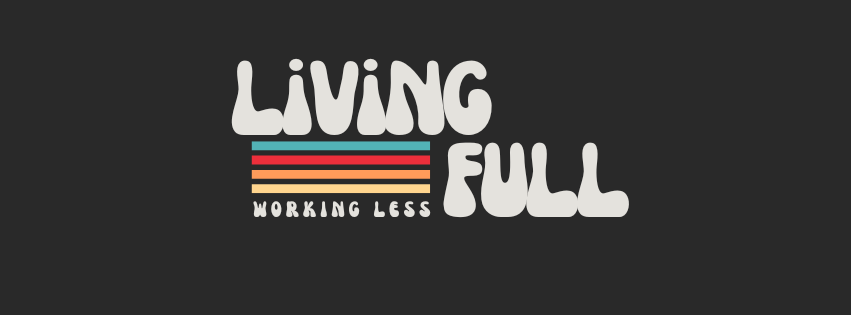
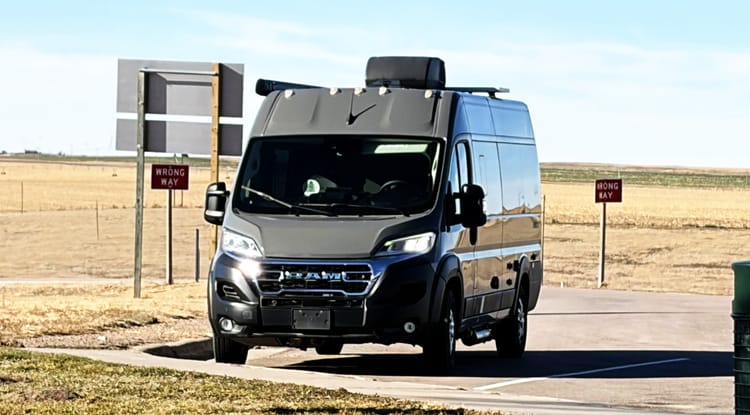

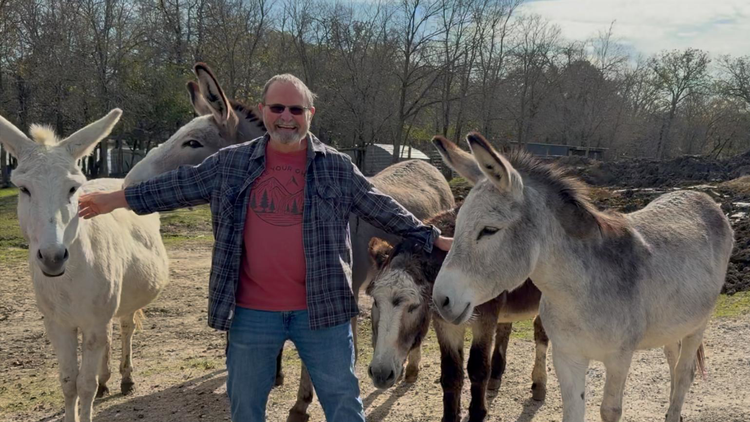

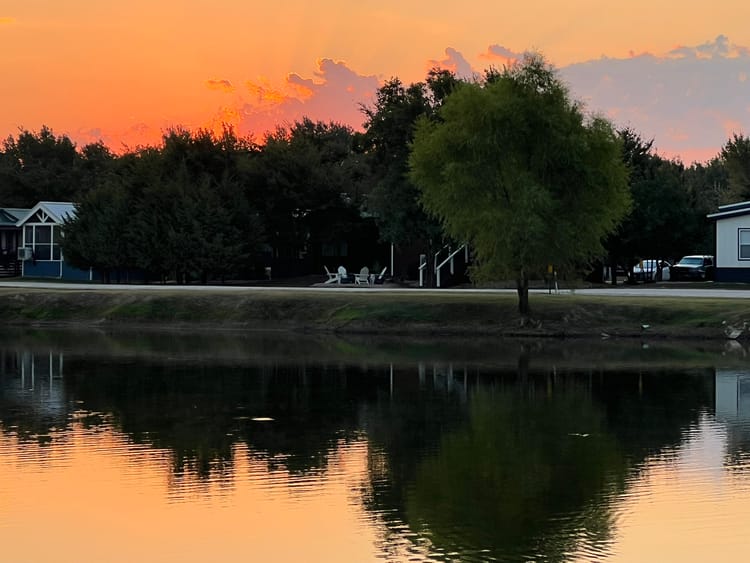
Member discussion